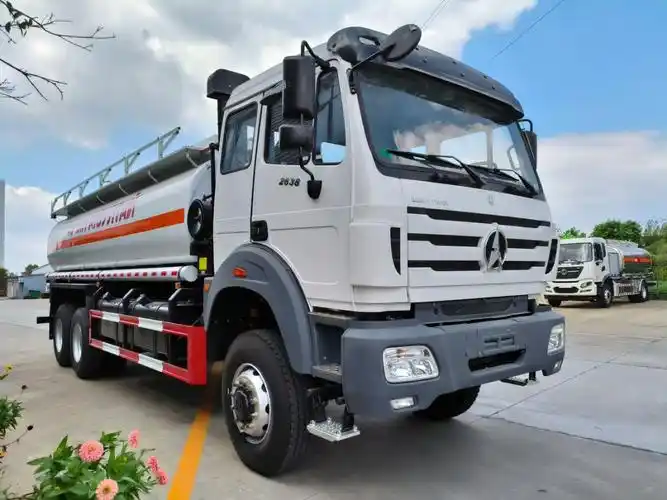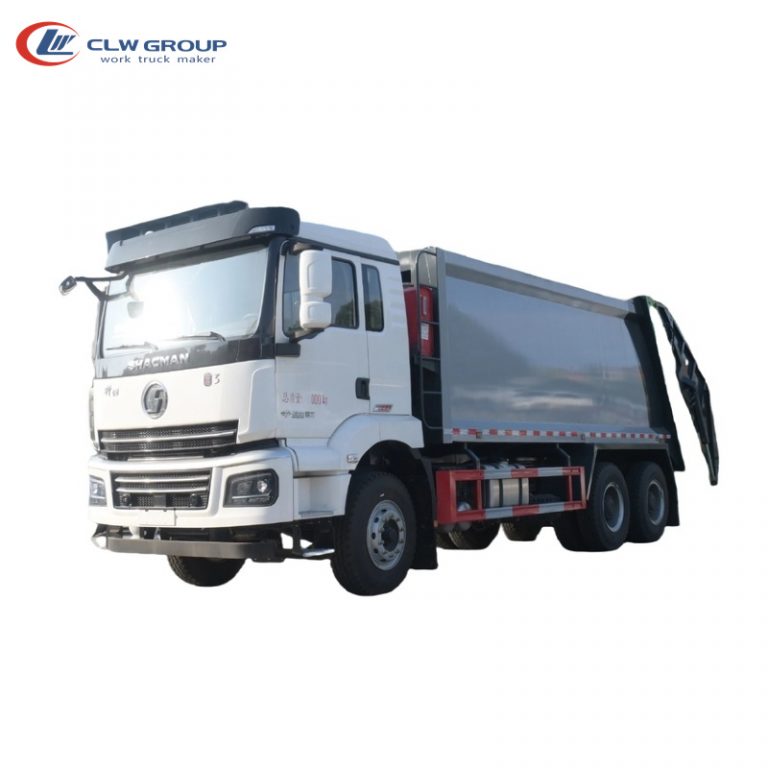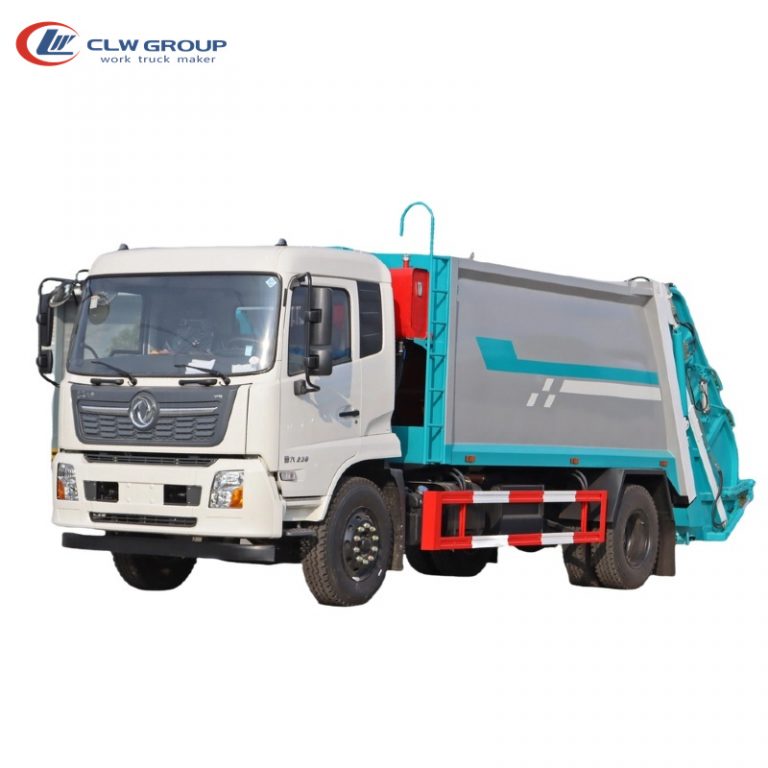Table of Contents
ToggleFuel trucks are an essential part of our modern infrastructure, quietly powering everything from construction sites to agricultural fields. But what exactly are they, and why are they so important? In this guide, we’ll dive deep into the world of fuel trucks, exploring their anatomy, operation, safety standards, and even what the future holds for these vital vehicles. So, buckle up and let’s hit the road!
What is a Fuel Truck?
At its core, a fuel truck is a speciali
zed vehicle designed to transport and deliver fuel. This can include gasoline, diesel, or other types of fuel, depending on the needs of the industry it serves. Think of it as a mobile gas station, but instead of sitting in one place, it travels to where the fuel is needed most.

The Anatomy of a Fuel Truck
Fuel trucks come in various shapes and sizes, but they all share some common components. Let’s break it down.
Key Components
- Tank: The most obvious part of a fuel truck is its tank, which is designed to hold large quantities of fuel safely. These tanks are often made from high-grade steel or aluminum to withstand the rigors of transportation and prevent leaks.
- Pumps: These are used to transfer fuel from the tank to the delivery point. Fuel pumps are engineered to handle high pressures and ensure a smooth flow of fuel, minimizing the risk of spills during the transfer process.
- Hoses and Nozzles: Essential for dispensing fuel, these components must be durable and resistant to wear and tear. High-quality hoses are designed to withstand the corrosive nature of fuel and are often reinforced to prevent kinks and leaks.
- Safety Features: Many fuel trucks are equipped with safety valves, emergency shut-off systems, and spill containment features to prevent accidents. These safety measures are crucial, as they help mitigate the risks associated with transporting flammable materials.
Types of Fuel Trucks
Fuel trucks can be categorized based on their design and purpose. Some common types include:
- Tankers: Large trucks designed for bulk fuel transport. These are often seen on highways, delivering fuel to gas stations and depots.
- Service Trucks: Smaller vehicles that deliver fuel to specific locations, like construction sites. These trucks are often equipped with additional tools and equipment to assist in on-site fueling.
- Refueling Trucks: Used primarily in aviation and military applications to refuel aircraft on-site. These trucks are specially designed to meet the stringent safety and operational requirements of the aviation industry.
The Importance of Fuel Trucks in Various Industries
Fuel trucks play a crucial role in several industries, ensuring that operations run smoothly and efficiently. Let’s take a closer look at a few key sectors.
Construction and Mining
In the construction and mining industries, fuel trucks are indispensable. They provide the necessary fuel to heavy machinery, ensuring that projects stay on schedule. Imagine trying to build a skyscraper without a reliable source of fuel for your cranes and excavators—chaos, right?
Without fuel trucks, construction sites would face significant delays, leading to increased costs and frustration. These trucks ensure that equipment is always ready to go, allowing workers to focus on their tasks rather than worrying about fuel shortages.
Transportation and Logistics
Fuel trucks are the backbone of the transportation industry. They deliver fuel to gas stations, ensuring that drivers can fill up their tanks and keep moving. Without fuel trucks, our roads would be a lot emptier, and long-haul trucking would come to a standstill.
Think about it: every time you stop at a gas station, there’s a good chance a fuel truck has just delivered the gasoline you’re pumping into your car. This constant flow of fuel is what keeps our economy moving, allowing goods to be transported across the country efficiently.
Agriculture
Farmers rely on fuel trucks to power their equipment, from tractors to irrigation systems. In a world where every minute counts during harvest season, having a dependable fuel supply is crucial. Picture a farmer trying to harvest crops without fuel for their machinery—talk about a recipe for disaster!
Fuel trucks ensure that farmers can operate their equipment without interruption, which is vital for maximizing productivity. In many cases, fuel delivery is scheduled to coincide with peak operational times, ensuring that farmers have the resources they need when they need them most.
How Fuel Trucks Operate
Understanding how fuel trucks operate can give you a greater appreciation for their role in our economy. Let’s break down the process.
Fuel Loading Process
When a fuel truck is filled up, it typically goes to a fuel depot. Here, the driver connects the truck to a fuel source, and the loading process begins. This involves careful monitoring to ensure that the tank is filled to the appropriate level without overfilling, which could lead to spills.
During the loading process, safety protocols are strictly followed. Drivers wear protective gear, and the area is monitored for any potential hazards. This attention to detail helps prevent accidents and ensures that the fuel is loaded safely.
Fuel Delivery Process
Once loaded, the fuel truck hits the road. The driver must navigate to the delivery location, often using GPS to ensure timely arrivals. Upon reaching the destination, the driver connects the hoses and pumps the fuel into the storage tanks or directly into equipment. It’s a well-orchestrated dance that requires precision and care.
The delivery process is not just about getting the fuel to its destination; it’s also about ensuring that it’s done safely and efficiently. Drivers must be aware of their surroundings, including traffic conditions and potential hazards, to ensure a smooth delivery.
Safety Regulations and Standards
Safety is paramount in the fuel trucking industry. There are numerous regulations and standards in place to protect both the environment and the people involved.
Environmental Considerations
Fuel trucks must adhere to strict environmental regulations to prevent spills and leaks. This includes using double-walled tanks and spill containment systems. The last thing anyone wants is a fuel spill that could harm the environment!
Regulatory bodies often conduct inspections to ensure compliance with these standards. Fuel truck operators must maintain detailed records of their operations, including maintenance logs and safety inspections, to demonstrate adherence to environmental regulations.
Safety Protocols
Drivers undergo extensive training to handle fuel safely. This includes understanding how to respond in emergencies, such as leaks or accidents. Regular safety drills and inspections are also crucial to maintaining high safety standards.
In addition to training, many companies implement safety management systems that include regular audits and assessments. This proactive approach helps identify potential risks and ensures that safety protocols are followed consistently.
Choosing the Right Fuel Truck for Your Needs
When it comes to selecting a fuel truck, the options can be overwhelming. With various types, sizes, and features available, how do you know which one is right for you? Let’s break it down to make the decision easier.
Factors to Consider
Choosing the right fuel truck involves several key considerations. Here are some factors to keep in mind:
Capacity
First and foremost, think about how much fuel you need to transport. Fuel trucks come in various capacities, from small service trucks that hold a few hundred gallons to large tankers that can carry thousands. If you’re running a small operation, a smaller truck might suffice. However, if you’re in a larger industry, you may need a truck with a higher capacity to meet your demands.
Type of Fuel
Different trucks are designed for different types of fuel. For instance, if you’re primarily transporting diesel, you’ll want a truck specifically designed for that purpose. Some trucks can handle multiple types of fuel, but it’s essential to ensure that the truck you choose is compatible with the fuel you plan to transport.
Regulatory Compliance
Fuel trucks must adhere to various local and federal regulations. Before making a purchase, ensure that the truck meets all necessary compliance standards. This includes safety features, environmental regulations, and any specific requirements for the type of fuel you’ll be transporting. It’s always better to be safe than sorry!
Cost vs. Value
While it might be tempting to go for the cheapest option, consider the long-term value. Investing in a reliable, high-quality fuel truck can save you money on repairs and downtime in the future.
Think of it this way: buying a cheap fuel truck might save you money upfront, but if it breaks down frequently or doesn’t meet safety standards, you could end up spending more in the long run. It’s essential to weigh the initial cost against the potential value and reliability of the truck.
Maintenance Tips for Fuel Trucks
Just like any vehicle, fuel trucks require regular maintenance to operate efficiently. Here are some tips to keep your truck in top shape.
Regular Inspections
Conducting regular inspections is crucial. Check for leaks, ensure that safety features are functioning, and monitor the condition of hoses and nozzles. A little preventive maintenance can go a long way!
Common Issues and Solutions
Some common issues with fuel trucks include leaks, pump malfunctions, and hose wear. Addressing these problems promptly can prevent more significant issues down the line. If you notice anything unusual, don’t hesitate to call in a professional.
- Leaks: If you spot any leaks, it’s essential to address them immediately. Not only can leaks lead to environmental hazards, but they can also result in costly fuel loss.
- Pump Malfunctions: If your pump isn’t working correctly, it can slow down your operations. Regularly test the pump to ensure it’s functioning as it should.
- Hose Wear: Hoses can wear out over time, leading to potential leaks. Inspect hoses regularly and replace them as needed to maintain safety and efficiency.
Cleaning and Upkeep
Keeping your fuel truck clean is also vital. Regularly wash the exterior to prevent corrosion and check the interior for any signs of contamination. A clean truck not only looks better but also operates more efficiently.
The Future of Fuel Trucks
As technology advances, so does the fuel trucking industry. Let’s take a peek into what the future might hold.
Innovations in Fuel Truck Technology
From GPS tracking to automated fuel dispensing systems, technology is making fuel trucks more efficient than ever. Imagine a world where fuel trucks can autonomously navigate to their delivery points—sounds like something out of a sci-fi movie, right?
Telematics and Tracking Systems
Telematics systems are becoming increasingly popular in the fuel trucking industry. These systems allow fleet managers to monitor fuel usage, track vehicle locations, and analyze driving behaviors in real-time. This data can help optimize routes, reduce fuel consumption, and improve overall efficiency.
Automated Dispensing Systems
Automated dispensing systems are also on the rise. These systems can streamline the fueling process, reducing the time it takes to fill up equipment or storage tanks. With automation, the risk of human error decreases, leading to safer and more efficient operations.
The Shift Towards Alternative Fuels
With the growing emphasis on sustainability, many fuel trucks are beginning to incorporate alternative fuels, such as biodiesel or electric power. This shift not only helps reduce emissions but also opens up new opportunities for innovation in the industry.
Biodiesel and Renewable Fuels
Biodiesel is gaining traction as a cleaner alternative to traditional diesel. Many fuel trucks are now designed to transport biodiesel, which can be produced from renewable resources like vegetable oils and animal fats. This shift not only benefits the environment but also supports local economies by utilizing domestically produced fuels.
Electric Fuel Trucks
Electric fuel trucks are also on the horizon. While still in the early stages of development, electric trucks promise to reduce emissions and lower operating costs. As battery technology continues to improve, we may see more electric fuel trucks on the road in the coming years.
Conclusion
Fuel trucks are more than just vehicles; they are the lifeblood of various industries, ensuring that operations run smoothly and efficiently. From construction sites to farms, these trucks play a vital role in our economy. As we look to the future, innovations in technology and a shift towards alternative fuels promise to make fuel trucks even more essential.
So, the next time you see a fuel truck on the road, remember the critical role it plays in keeping our world moving! Whether it’s delivering fuel to a remote construction site or refueling a fleet of trucks, these vehicles are the unsung heroes of our modern infrastructure.
In a world that’s constantly evolving, fuel trucks will continue to adapt, ensuring that they meet the needs of industries while prioritizing safety and sustainability. The journey of fuel trucks is far from over, and we can’t wait to see where the road takes them next!











